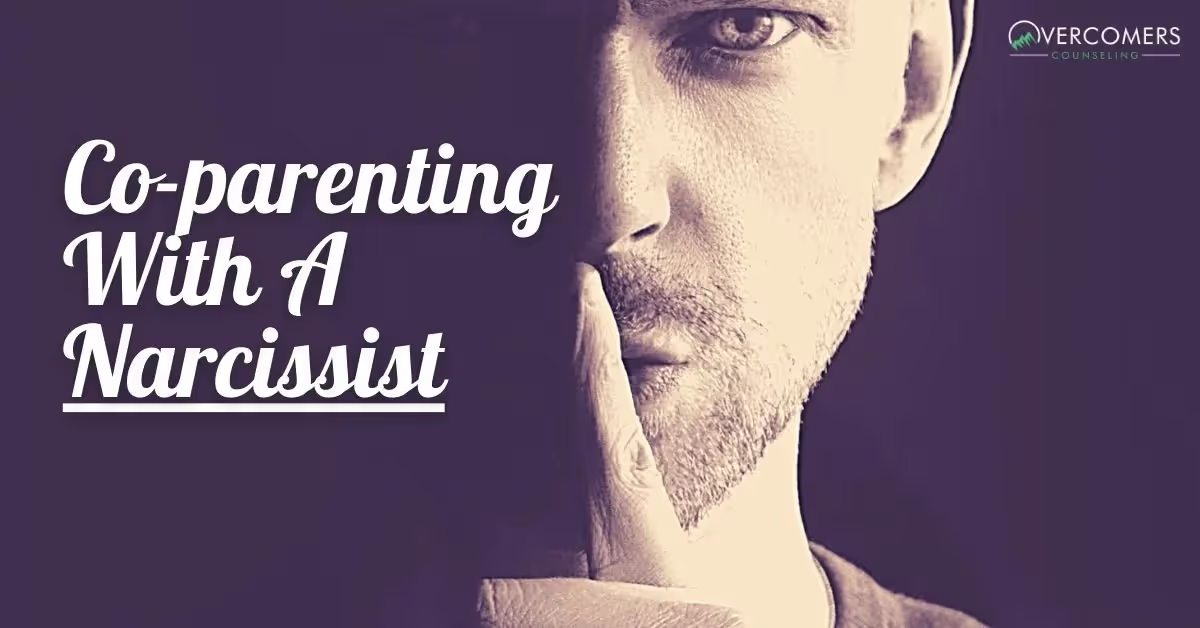It can be difficult to co-parent with someone who exhibits narcissistic qualities.Interacting with them can be hard enough without the addition of...

It can be difficult to co-parent with someone who exhibits narcissistic qualities.
Interacting with them can be hard enough without the addition of children.
Co-parenting requires cooperation, which a narcissistic person may find hard to do.
People with narcissistic traits often view themselves as superior to others, which can lead them to place importance on their own needs and desires over those of their children.
As a result, they may not feel compelled to be accommodating or cooperative, even when it would benefit their child.
However, if both parents receive support for narcissism, they can come to amicable agreements, despite the potential frustration involved.
When dealing with a narcissistic parent, it is vital to prioritize the child or children's best interests and maintain control of the situation.
One of the ways to co-parent with a narcissist is to first ensure that you create a legally binding parenting agreement.
A legally binding parenting agreement helps establish a plan for both you and the narcissistic parent and how you would both navigate the parenting process.
Also, most importantly, remember to always stay calm when co-parenting with a narcissist.
Any form of confrontation with people with this disorder will be counterproductive because of the way they think and behave.
In the incident that things are getting too overwhelming for you, consider seeing an individual or family counselor.
A professional counselor or therapist is in a better position to help you navigate co-parenting with a narcissist.
Read on for more details on how to co-parent with a narcissist.
The most important part of co-parenting with a narcissist is establishing a parenting agreement.
This helps guarantee that the boundaries you set for yourself and your children can be upheld legally.
It's vital to be clear about who will have custody of the children and what is accepted and not accepted.
You need to create a strong parenting agreement and make sure that anything you and your co-parent decide upon is documented in order to successfully co-parent with a narcissist.
If your co-parent tries to go against your wishes, this will safeguard both you and your children since it is legally binding.
Discuss co-parenting schedules and legal agreements with a lawyer on religion, education, healthcare, visits, holidays, and finances.
You can also employ a mediator to act as a go-between for any form of communication between you and the co-parent.
You could also consider requesting that a court appoint a guardian ad litem to help you decide what's best for your children.

Co-parenting with a narcissist can involve many instances of conflict.
If there is any incident when your partner becomes angry or lashes out, it's important to remain calm.
Staying calm during difficult times is essential for preserving your mental well-being.
Remember that you can control your reactions.
Take a deep breath.
If you remain calm and composed, it will reduce the narcissist's ability to incite and manipulate you.
You have the opportunity to take control of your emotions and guide them towards a peaceful state, avoiding any unnecessary chaos.
It is also advisable to avoid using insulting language or blaming each other.
Ensure you communicate effectively, and it is important to use language that is easy to understand, free from emotional bias, and to have confident body language and tone.
It is always advisable to avoid involving your children in any conflicts or disagreements you may have with your co-parent.
Whenever possible, always try to have discussions about contentious issues away from your child's hearing range.
It's important to avoid responding to negative comments if your co-parent makes them about you.
Engaging in name-calling or ranting can involve your children in the situation, which may affect them in the future.
As parents, it is always important to provide them with a safe environment by emphasizing stability, love, and positivity in their lives.
Although you cannot predict and control the actions of your co-parent, you have the power to influence how you raise your children.
When you demonstrate love, compassion, and understanding, you can positively impact your children's lives.
Ensure you always make an effort to shield them from negativity and maintain a tranquil atmosphere in your home.
Make sure your home is a place of love and safety.
Studies indicate that children raised by parents with NPD may face challenges with their self-esteem in the future and have a higher likelihood of developing mental health or psychiatric problems as adults.
This is why it is vital to strive to be a positive role model by leading with empathy and care.
When you are taking care of someone, make sure to communicate openly with them, help them feel more confident and good about themselves, and teach them how to handle difficult situations.
It's okay to ask for help if you're struggling with the challenges of co-parenting.
You can get help from a licensed therapist who can guide you through this challenging circumstance on a personal level.
Also, think about joining a support group for separated or divorced parents.
There are also options for a narcissistic abuse recovery support group online or in person.
If you believe that your children are struggling with the new parenting situation, you may consider taking them to a therapist.
Alternatively, you can look for a family therapist who can work with both you and your child if you think that would be more suitable.
Although it can be difficult to co-parent with a narcissist, there is support for narcissism available to help you navigate such a situation.
While the path may be arduous, your commitment to fostering a positive and supportive environment for your children will ensure their emotional well-being and growth.
Remember to stay steadfast in your approach and seek the appropriate assistance you need.
Some examples of how to co-parent with a narcissist include creating a binding, legally binding parenting agreement, staying calm, keeping your children away from conflict and negativity, parenting with love and empathy, and considering seeking out individual or family counseling.
https://www.webmd.com/mental-health/features/narcissistic-coparent
https://www.medicalnewstoday.com/articles/co-parenting-with-a-narcissist#tips
https://www.healthline.com/health/parenting/co-parenting-with-a-narcissist
https://www.choosingtherapy.com/co-parenting-with-narcissist/
Addressing anxiety is crucial because it can significantly impact your quality of life and overall well-being. Left untreated, anxiety can lead to more severe mental health issues, relationship problems, and difficulty functioning in daily life.
The duration of anxiety counseling varies for each individual, depending on the severity of their anxiety and their progress in therapy. Our therapists will regularly assess your progress and adjust your treatment plan as needed.
Yes, Medicaid provides insurance coverage for therapy services specifically designed to help individuals struggling with anxiety, depression, and other mental health conditions.
It's important that you feel comfortable discussing personal matters with your therapist in order to open up and get more out of therapy sessions; therefore finding someone who meets certain criteria like experience level, expertise areas, and personality is key when selecting a therapist who can give meaningful feedback about how best handle issues related to anxiety or other mental health concerns.
To reduce your anxiety, you can practice relaxation techniques such as deep breathing, progressive muscle relaxation, guided imagery, and mindfulness practices. Additionally, regular exercise has been found to be beneficial in managing stress and improving mental health.
Ignoring anxiety can exacerbate symptoms and make it more challenging to manage over time. This can result in a negative impact on your personal, professional, and social life, leading to feelings of isolation and even depression.